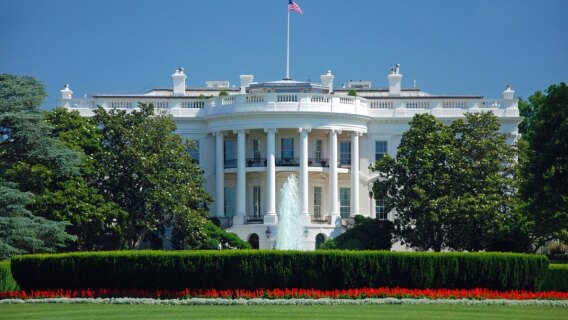With the Iowa caucus (sort of) behind us and the odds of who will win the Democratic primary shifting, traders and investors have started to rebalance their portfolios as Bernie Sanders, Joe Biden and others move up and down in the polls.
Before I dive too deeply into the political landscape please know I will never give you my own opinion on political issues as my personal thoughts/beliefs do not matter to you. Instead, I will highlight political issues when the market and sectors are starting to react to these items.
[text_ad]
And while the coronavirus is getting most of the attention and blame for the market’s recent weakness, another reason that some are attributing to the decline in the market in the last two weeks is the changing odds of who will win the Democratic primary. (Again, I’m not touching politics with a 10-foot pole; this is just my observation of what many are chattering about.) As Bernie Sanders’ odds of victory (according to betting markets) have improved, investors are starting to wonder what a Bernie Sanders presidency would mean for the stock market. As a result, many sectors that could be impacted by a Sanders presidency have started to see increased selling pressures.
For example, the Biotech (IBB) and Health Care (XLV) sector ETFs are down more than 5% in the last two weeks and the Financials ETF (XLF) is down 3.5% (the bond market/yield curve is not helping the financials either). Into these declines, traders have been buying puts looking for further declines. Here are some of those trades:
1/31 - Buyer of 5,800 Health Care ETF (XLV) March 98 Puts for $1.54 – Stock at 99.7
1/27 - Buyer of 5,000 Biotech ETF (IBB) March 108 Puts for $1.60 – Stock at 116
1/26 - Buyer of 5,700 Biotech ETF (IBB) March 111 Puts for $1.75 – Stock at 118
1/23 - Buyer of 9,000 Regional Bank ETF (KRE) March 56/52 Bear Put Spreads for $1.14 – Stock at 56.3
Whether Bernie Sanders will ultimately be the Democratic candidate for President is still to be determined. However, as is often the case when the narrative/odds change, traders often sell and de-risk to get ahead of a potential outcome—like what a Bernie Sanders presidency would mean for the stock market.
And with Super Tuesday on March 3 we will very soon get a much better idea if Sanders, Biden or another candidate will be the Democrat nominee for President.
So if I was concerned with one nominee or another, and wanted to hedge my portfolio risk, I might look to buy a put that would give my portfolio bearish exposure in time for Super Tuesday. For example, I could:
Buy to Open the S&P 500 ETF (SPY) March 330 Puts (expiring 3/20/2020) for $5.
The most I could lose on this trade is the premium paid for the put, or $500 per put purchased, if the SPY were to close above 330 on March 20.
Or, if I wanted to hedge the Presidential election on November 3, I could:
Buy to Open the S&P 500 ETF (SPY) December 330 Puts (exp. 12/18/2020) for $18
The most I could lose on this trade is the premium paid for the put, or $1,800 per put purchased, if the SPY were to close above 330 on December 18.
While many TV pundits and hedge fund titans have made dire predictions of the market falling 40%-50% on a Bernie Sanders or Elizabeth Warren presidential victory, I would recommend largely ignoring the noise and political theater over the next eight months and instead focus on the price action of leading stocks and the stock market.
[author_ad]

